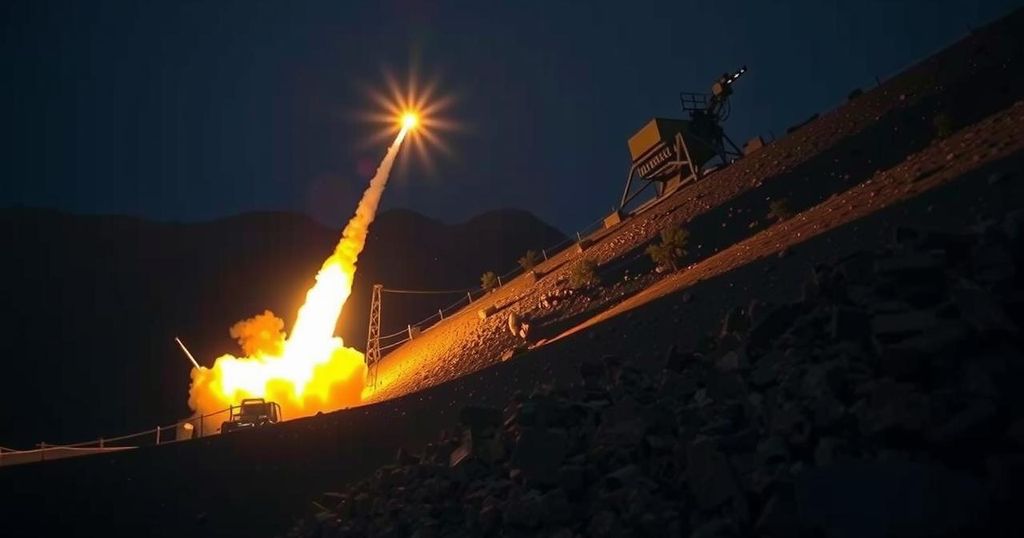Iran Issues Threats Following Israeli Strikes; Hezbollah Escalates Tensions with Rocket Attacks
Iran has issued veiled threats following Israeli airstrikes that killed two soldiers while Hezbollah retaliated with rocket attacks on Israeli positions in southern Lebanon. The Iranian Foreign Ministry emphasized Iran’s right to defend itself, although no immediate retaliatory actions were reported. Israeli strikes targeted critical military sites, while the US urged a cessation of hostilities. Hezbollah’s rocket attacks further exacerbate the already tense situation between Israel and Iran.
Iran issued indirect threats following pre-dawn Israeli airstrikes that resulted in the deaths of two Iranian soldiers, while Hezbollah launched rocket attacks on Israeli positions in southern Lebanon. The Iranian Foreign Ministry remarked on Saturday that “Iran has the right and duty to defend itself against foreign acts of aggression,” which suggests a potential for retaliation. A semi-official news outlet from Iran promised a “proportional reaction” to Israel’s strikes, although current reports indicate that no immediate Iranian response is planned. These airstrikes by the Israeli Air Force targeted critical military infrastructure, including drone and missile production facilities and air defense installations. Notably, one target was identified as a Russian-made S-300 air defense system located at Imam Khomeini International Airport, and these sites were previously involved in attacks against Israel on April 14 and October 1. Iran claimed that its air defenses effectively responded to the Israeli aggression, reporting two casualties and limited damage to infrastructure. The Israeli Defense Forces (IDF) justified their attacks as a necessary response to prolonged aggressive actions by the Iranian regime. They aimed to conduct these operations in a manner that minimized casualties while preventing Iran from declaring significant losses. The United States, while distancing itself from the Israeli operations, called upon Iran to halt its attacks on Israel to prevent further escalation. In response to the rising tensions, the Taliban in Afghanistan condemned Israel, accusing it of exacerbating violence in the region. Concurrently, Hezbollah executed rocket strikes targeting Israeli forces and claimed the launch of drones against an Israeli airbase near Tel Aviv, further escalating the conflict with reports indicating that approximately 80 rockets were fired into northern Israel.
The current state of affairs between Iran and Israel has been marked by escalating hostilities and military actions. Recent events have underscored longstanding tensions, notably Iran’s missile strikes on Israel and Israeli responses to these perceived threats. Both nations are engaged in a complex geopolitical struggle, with regional factions such as Hezbollah playing significant roles as intermediaries. The backdrop of ongoing conflict in the Middle East complicates the situation, as larger regional powers react to unilateral military actions. Therefore, the Iranian motivation to respond to Israeli airstrikes is compounded by broader implications for Middle Eastern stability.
In summary, the recent Israeli airstrikes against Iran have provoked a stern and threatening reaction from Tehran, although no immediate retaliation has been confirmed. These developments occur amidst heightened military activity from Hezbollah, demonstrating the increasing volatility in the region. The situation remains precarious, with local and international powers watching closely for possible escalations that could lead to broader conflict.
Original Source: nypost.com




Post Comment